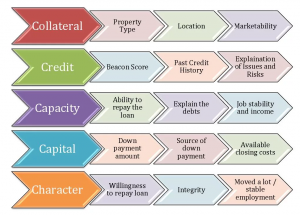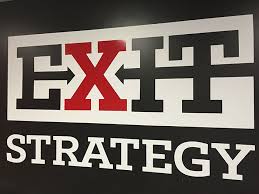
This story appeared in the Fall issue of Our House Magazine.
The Fort McMurray fire and subsequent reconstruction demonstrates the necessity—but also the limitations—of home insurance in the face of natural disasters
Tuesday, May 3, 2016, isn’t a day Lisa Reesik will soon forget. It started out beautifully, without a single cloud in the blue northern Alberta sky.
While there was a wildfire burning outside Fort McMurray, a city of more than 80,000, it wasn’t a major concern for residents like Reesik. That day, the mother of two went to work and carried on business as usual. Even as she went to lunch with co-workers, there was no sign of what was to come. But by 1 p.m. the skies over the town turned ugly, quickly.
From downtown, Reesik could see the smoke swallowing up Abasand and Beacon Hill, the neighbourhoods her family of four called home for 16 years. “It was like something out of a movie,” she tells Our House magazine. “There was smoke, but you knew there were flames.”
When word came the fire jumped the Athabasca River that bisects the city, Reesik left work and headed for home to pack what she could. She grabbed a few documents and a garbage bag full of clothes for her kids and husband and headed to her brother’s place to meet up with the rest of the family.
As she left her home, she prayed the blaze wouldn’t take out her aunt’s house, which was much closer to the conflagration. Eventually her entire extended family met up and headed north out of the city for safety. Reesik’s husband, Robin, who worked for the energy company Suncor, was evacuated to the south of Fort McMurray. But there was no way out to the north so, not feeling safe, the family decided to make a break for it and go back through town to the south.
At 9:30 p.m., the family crossed back into Fort McMurray amid rumours the fire had taken out much of the city’s major structures. The smoke was so thick, she could only see a few inches in front of her car.
An hour later Reesik got a call from a friend.
“She said, ‘I’m really sorry, your home is gone,’ and began to cry,” Reesik recalls. “I said, ‘It’s OK.’ I knew in my belly it was gone at 5:30. I just had this overwhelming sense that it was gone. I really thought when I looked at the city in the rearview mirror, I would never be back because there would be nothing to come back to.”
Nine hours later, the family was reunited in Lac La Biche, a couple of hundred kilometres south, where they would call a camper home for the next two months.
“You felt as though you had cheated death,” she says. But Reesik also knew her family had every intention to rebuild. Fortunately, she and husband had purchased the right amount of insurance for the home and their mortgage. They used their insurance to keep paying the mortgage and minimized their spending until Robin was able to return to work. When it was time to rebuild, they also relied on their mortgage provider to help them get a construction mortgage and find the right contractors to do the work properly.
The family has been renting a home in the meantime, but plans to move back to their new home this fall.
“We had so much we had built up and our lives together, we wanted it back,” she says. “I wanted my kids to see I was Ok despite it all, and they would be OK despite it all.” The Reesiks had also purchased replacement insurance, which means in the end, they would not be out of pocket for the entire ordeal.
But not everyone was so lucky. The Fort McMurray fire, the most costly natural disaster in Canada’s history, was an eye-opening experience for even seasoned mortgage professionals. Charlene Elliott is a DLC mortgage broker in Fort McMurray and her memories of that fateful time are just as vivid. When word went out to evacuate the city, she was at the airport watching the flames race through town. At the same time her husband and kids were trying to get out.
“It’s surreal. You really can’t believe you’re living through it,” Elliott recalls. The family basically escaped with the clothes on their backs, eventually making it to Calgary for a few days and spending almost a month in Edmonton before returning in June 2016.
Despite living in a hard-hit neighbourhood, Elliott’s home was spared. The roof was singed and needed to be replaced, but that was about it.
Still, as she goes about her job helping people get mortgages, she’s quick to insist her clients get proper insurance coverage. “I tell my clients, you have to make sure you have full coverage,” Elliott says. “Don’t cheap out on your insurance premiums because you think you’re fully covered… [People] felt it when [they] came back.”
She notes that after the evacuation, the banks and lenders were good about holding payments while people put their lives back together. In Elliott’s case, she deferred her payments for three months. Some lenders allowed deferrals for up to six months. When it came to the rebuilding stage, in some cases lenders would make the homeowner pay off the mortgage from insurance and then do a builder mortgage, she says, while some would pay the builder through construction.
In the end, the fire destroyed 2,400 structures and triggered insurance payouts estimated over $4 billion, the highest total for any such event in Canada. But there are few places across the country immune to a natural or human-caused disaster. B.C.’s south coast is awaiting a major earthquake, flooding is common in the prairies and ice storms can batter Quebec and the Atlantic provinces.
The Canada Mortgage and Housing Corporation has a mortgage loan insurance program, but it protects lenders against mortgage default and is not standard all-risk insurance. “This means that physical damage to a house due to a natural disaster would typically be covered by the homeowners’ property insurance policy. Lenders are required to ensure standard all-risk insurance is in place to protect against loss or damage to buildings and their contents,” a CMHC spokesperson noted in an email to Our House.
The email also explained that in exceptional situations, CMHC may offer special arrangements to support homeowners affected by natural disasters. The government agency recently extended a number of flexibilities to lenders to assist Canadians who may be affected by fires this past summer in western Canada.
Aly Kanji is the president and CEO of InsureLine Inc., a national insurance provider who’s seen firsthand just how unprepared people are for a disaster to strike, natural or otherwise. “One of the things that most people don’t appreciate is that you’re still making your mortgage payments while the repairs are getting done,” he says, adding that it can be a big deal when you have to find a place to rent and still make a payment. The typical insurance policy includes fire and liability, but there is an option to buy a comprehensive policy or specified perils policy that will cover you for more.
Kanji suggests that there is a misconception about the types of events you can be insured for and who will be around to help. For instance, in most parts of B.C., you can purchase earthquake insurance. However, he points out that it’s quite different than regular insurance in that the deductible is usually five, eight or 10 per cent of the total coverage amount. It’s possible to buy a separate policy to lower the deductible to the usual cost of a policy.
He also observes that the government isn’t going to help cover a home if insurance was available. The federal government did step up during the Alberta floods of 2013, but that was because insurance that would have covered widespread, natural flooding wasn’t available in Canada at the time.
Kanji also argues that people often don’t buy enough insurance. They think $20,000 to $30,000 for replacement insurance can get them through a disaster, but the costs can add up quickly. For a typical apartment, he estimates $60,000 to $80,000 is adequate. “That’s the problem: no one thinks they’ll have to use the product,” he says.
Kanji has some advice for new homeowners: It’s Important to take the time to understand what’s available. You only have to do it once.
Back in Fort McMurray, Reesik and her family are waiting to move into their new home. But it’s not likely to be joyous occasion. The past year has been difficult for the family, and she admits it will be a big adjustment. “I think it’s going to be hard, to be honest,” she says. “It’s going to take time to make it [feel like] home.”
Contact me for your best mortgage options 705.669.7798 or trina@ndlc.ca
#trinamortgages #mortgages #ndlc #freedomofchoice
#bestmortgageforme #executive #firstimehomebuyer
If you found this information valuable, I only ask that you share with your friends and family.
Copyright DLC









